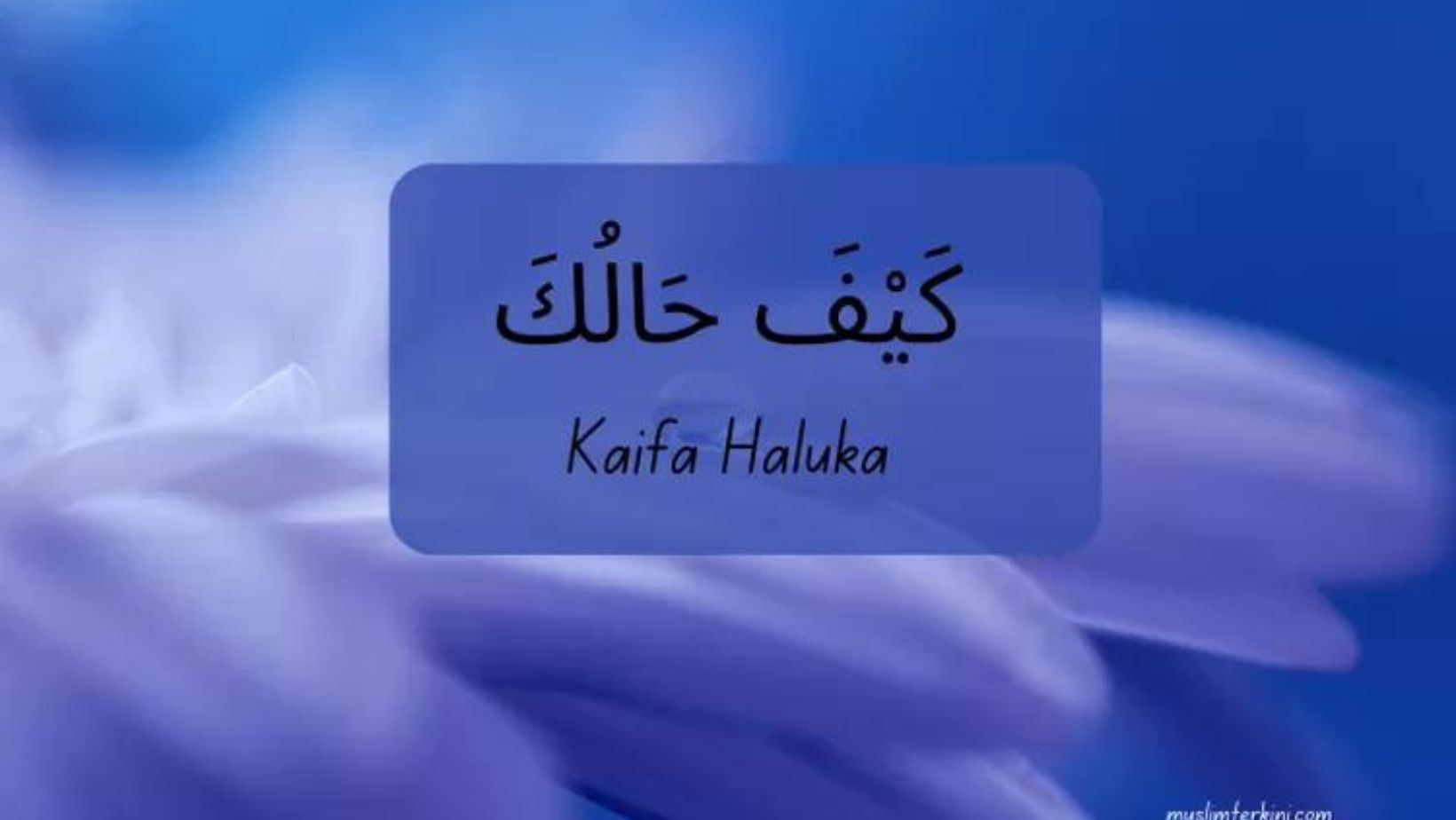
Kaifa Haluka Artinya
As we delve into the meaning of Kaifa Haluka Artinya it’s essential to understand its significance in Arabic culture. The phrase translates to 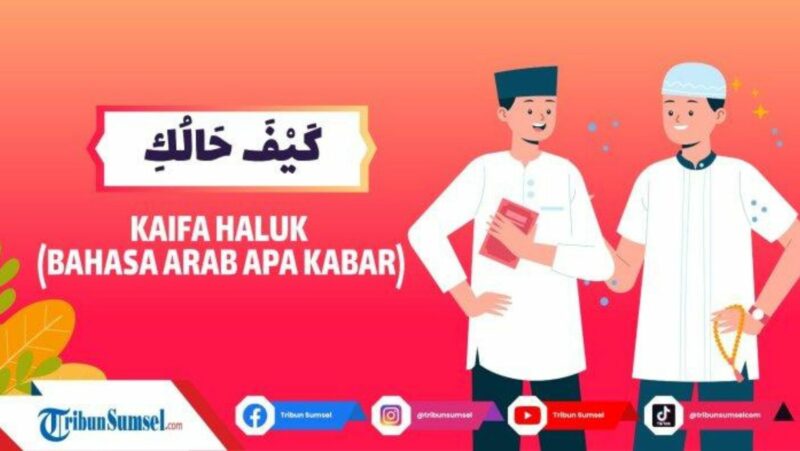
When encountering Kaifa Haluka Artinya in conversation, it serves as a polite inquiry into one’s well-being. Responding appropriately showcases respect for local customs and fosters positive rapport. Embracing these linguistic subtleties enriches cross-cultural communication and promotes mutual understanding.
Mastering basic greetings like Kaifa Haluka Artinya demonstrates a genuine interest in connecting with Arabic-speaking individuals. Beyond words, acknowledging cultural norms reflects openness and empathy towards diverse perspectives. Incorporating such phrases into daily interactions can lead to meaningful exchanges and bridge cultural divides effectively.
What is the Meaning of a Kaifa Haluka Artinya?
Exploring the phrase Kaifa Haluka Artinya unveils its significance in Arabic culture. Translated to English, it means “How are you?” This common greeting serves as a way to inquire about someone’s well-being or state of being, reflecting the value placed on interpersonal connections and courtesy in Arab societies.
In Arabic-speaking regions, exchanging pleasantries like Kaifa Haluka Artinya is not merely a formality but a genuine expression of care and 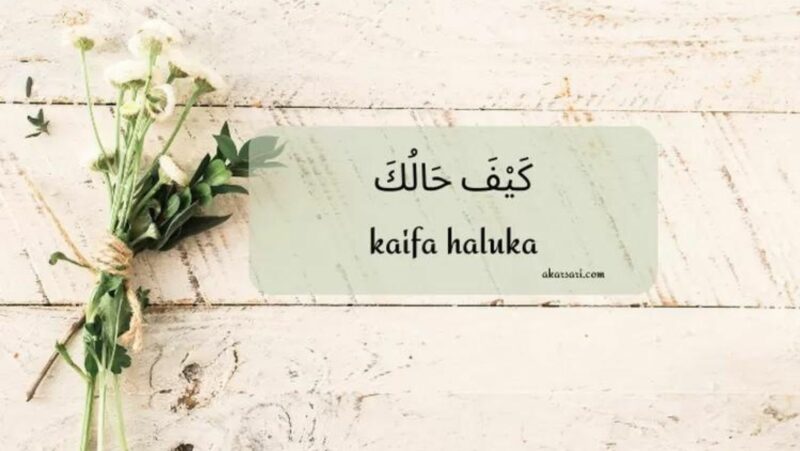
The depth of meaning behind Kaifa Haluka Artinya lies in its ability to foster communication beyond surface-level interactions. By asking about one’s well-being, individuals convey empathy and interest in each other’s lives, nurturing bonds that go beyond mere acquaintanceship.
Embracing phrases like Kaifa Haluka Artinya goes beyond linguistic translation; it embodies cultural values centered around compassion, connection, and mutual understanding. In essence, this simple question encapsulates the spirit of hospitality and warmth that characterizes Arab culture.
Language Origin of Kaifa Haluka Artinya
Exploring the roots of the phrase Kaifa Haluka Artinya offers a glimpse into its intriguing language origin. Originating from Arabic, “Kaifa Haluka” is a common greeting that translates to “How are you?” in English. The Arabic language is known for its rich history and widespread 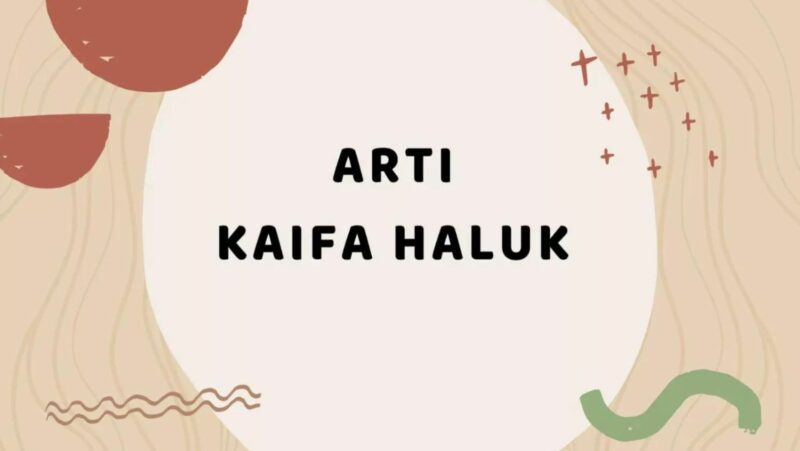
Arabic, as one of the most spoken languages globally, has left an indelible mark on literature, art, and culture. It boasts a unique script and phonetic system that sets it apart from many other languages. The phrase Kaifa Haluka Artinya exemplifies the beauty of Arabic’s linguistic nuances and reflects the value placed on politeness and social interactions within Arab-speaking societies.
Etymologically, “Kaifa” means “how,” while “Haluka” refers to “your condition” or more commonly interpreted as “you.” When combined, these words form a simple yet profound inquiry into someone’s well-being. This linguistic construct underscores the importance of interpersonal connections and demonstrates how language can serve as a bridge between individuals.
In contemporary usage, Kaifa Haluka Artinya retains its traditional charm while adapting to modern communication mediums. Whether spoken in casual conversations or exchanged digitally, this greeting embodies a sense of warmth and genuine interest in the welfare of others. Its enduring popularity highlights the enduring appeal of cultural exchange through language and reinforces the universal desire for meaningful human connections across borders.
Common Usage of Kaifa Haluka Artinya
When it comes to understanding the meaning of Kaifa Haluka Artinya it’s essential to delve into its common usage in various contexts. This Arabic phrase, which translates to “how are you” in English, is a customary greeting used in conversations among Arabic speakers. It serves as a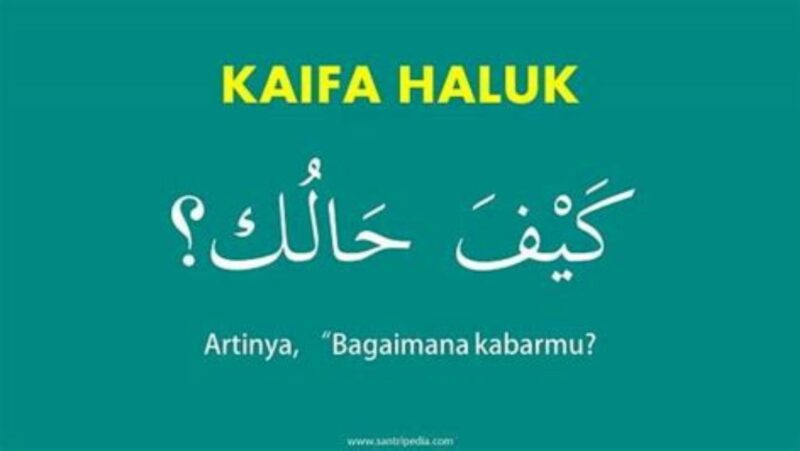
In everyday interactions, kaifa haluka is often employed as a standard salutation when meeting friends, family members, colleagues, or even acquaintances. The phrase reflects cultural norms emphasizing the importance of showing care and consideration for others’ welfare. Responding to this greeting typically involves reciprocating with a similar inquiry or offering a positive affirmation of one’s condition.
Beyond its literal translation, the use of kaifa haluka extends beyond mere pleasantries and can serve as an opening for deeper conversations. In some cases, individuals may share personal updates or express genuine concern based on the response received. This simple question can pave the way for meaningful exchanges that strengthen social bonds and foster connections within communities.
In addition to face-to-face interactions, modern communication platforms have also integrated the use of kaifa haluka in virtual settings. From text messages to social media posts, this phrase transcends physical boundaries and retains its significance in digital dialogues. Its versatility highlights how language bridges geographical gaps and facilitates interpersonal communication across diverse populations.
Overall, the widespread usage of kaifa haluka underscores its role not just as a linguistic expression but as a cultural symbol embodying warmth, empathy, and human connection. Whether spoken casually among friends or typed across screens miles apart, this phrase encapsulates the universal desire to connect with others on a fundamental level – by simply asking: How are you?
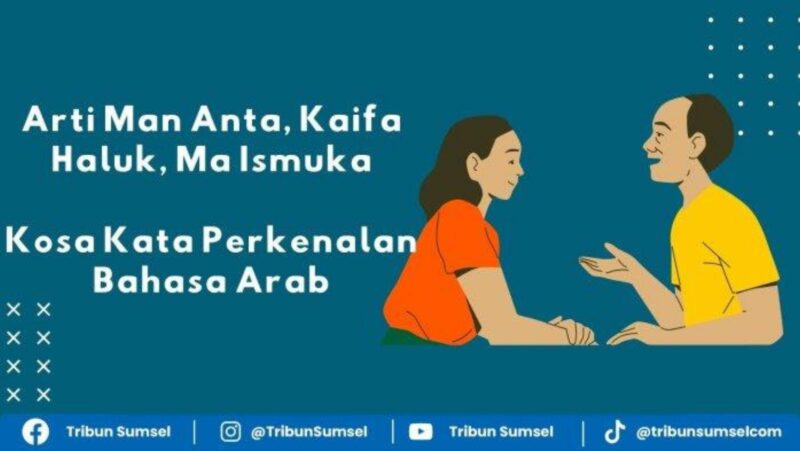
Exploring the nuances of kaifa haluka has allowed me to appreciate the importance of checking in with ourselves and others regularly. In today’s fast-paced world, where distractions are plentiful and self-care can easily be overlooked, this simple question serves as a reminder to prioritize our holistic wellness.
Through my research and analysis, I have uncovered how this phrase transcends language barriers to convey a universal message of care and concern. It encourages empathy and connection between individuals, fostering a sense of community and support in both personal and professional relationships.







